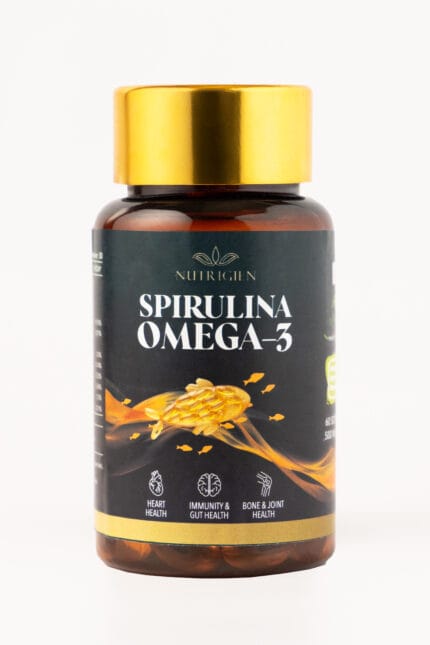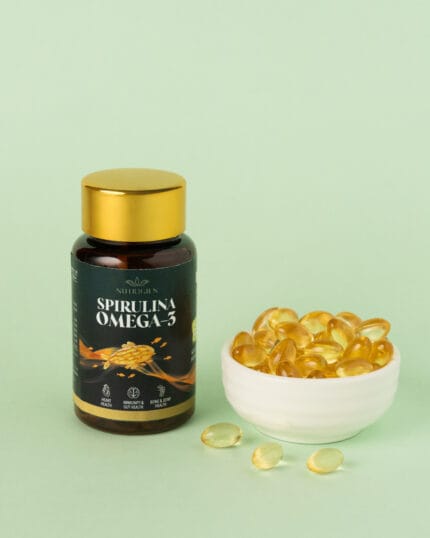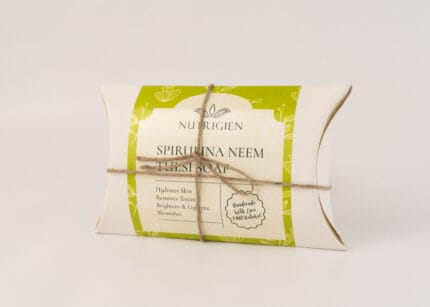
Spirulina Detox Tea
₹349.00 Original price was: ₹349.00.₹249.00Current price is: ₹249.00.
All-natural blend, ensuring no side effects and optimal health benefits: It’s crafted with ethically sourced ingredients for an eco-friendly choice. Also it comes with convenient tea sachets for a hassle-free brewing experience and free from preservatives, colors, and artificial sweeteners.
Out of stock
Description
Health Benefits of Spirulina Detox Tea:
1. Jumpstart your fat loss journey with the power of nature.
2. Detoxifies your body, flushing out harmful toxins.
3. Aids in hydration, giving you an essential boost throughout the day.
4. Enhanced with Indian herbs, known for boosting metabolism.
5. Provides a soothing effect, ensuring mental tranquility.
Directions:
Infuse one tea bag in hot water for 2 to 3 min.
Twice a day is the recommended dosage.
Related products
Spirulina Omega-3 Tablets
Spirulina is a nutrient-dense superfood rich in plant protein, chlorophyll, vitamins, minerals, and antioxidants, while Omega-3 fatty acids (EPA & DHA) are known for their role in heart, brain, joint, and eye health.
This thoughtfully formulated combination supports energy levels, immunity, metabolic balance, and overall vitality, making it ideal for adults looking to strengthen their nutritional foundation naturally.
Nutrigien’s Spirulina Omega 3 Tablets are manufactured under strict quality standards, ensuring purity, safety, and consistent nutritional value in every tablet.
Morning Miracle
Spirulina Tablets (60 Tablets, 500 mg)
Spirulina Gold
Spirulina Neem Tusli Soap
Spirulina Whipped Soap
High Quality
Our products are made from the finest Spirulina, ensuring purity and potency.
Sustainably Sourced
We are committed to sustainable farming practices, making our products environmentally friendly.
Scientifically Formulated
Each product is carefully formulated to maximize Spirulina's health benefits.
Trusted Brand
As a leading Spirulina manufacturer in India, Nutrigien Agrotech has a reputation for excellence and reliability.







Reviews
There are no reviews yet.